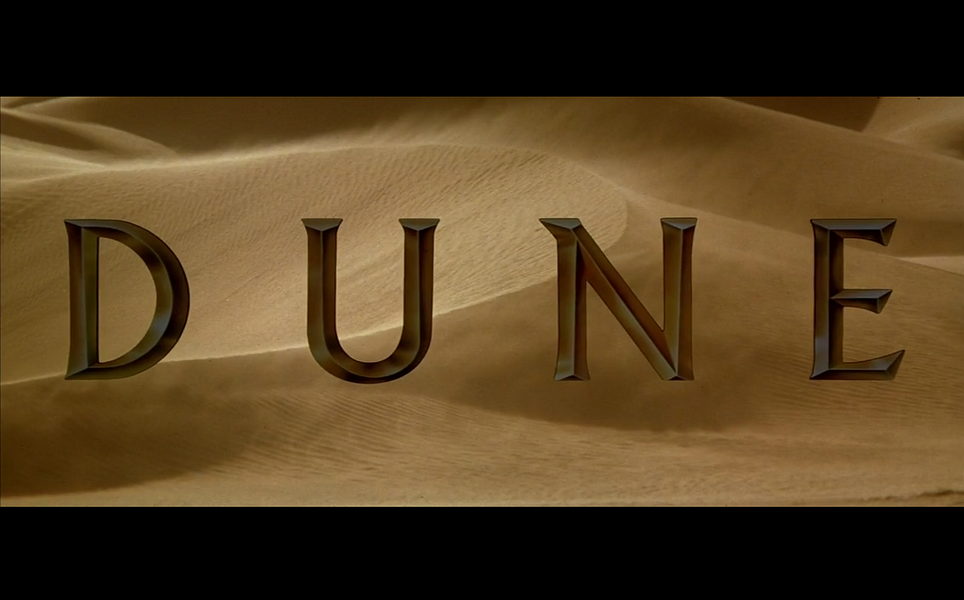What do you get when you combine a visionary director, two young rising talents on screen, and a popular sci-fi novel? Dune: An incomprehensible mess of a film, the only interesting thing about which is the question of how such a movie winds up being released.
Dune, for all those unfamiliar with the franchise—which includes me; until two weeks ago all I knew about Dune was there was a big worm in it—is a novel by Frank Herbert, published in 1965 and the sort of hard sci-fi that truly devoted nerds bring up when they talk about how popular sci-fi movies like Star Wars aren’t “true” science fiction. It’s dense, it’s complex, and it was widely considered unfilmable, a presupposition Dune the movie does nothing to end.
The basic plot is this: The emperor of the universe plots to end the rise of a political rival, Duke Leto Atreides, by giving him control of the planet Arrakis, home to the universe’s only supply of Spice, a drug that grants prescience to users, which allows for dangerous space travel shortcuts to be used safely. Arrakis had previously been controlled by Baron Vladimir Harkonnen, the emperor’s collaborator in a plan to kill Atreides when he arrives on Arrakis. Atreides is murdered, while his wife Jessica and his son, Paul, escape into the hostile desert.
Jessica is a member of a sisterhood of space witches who have been manipulating bloodlines for generations to try to create a superbeing, and it seems that Paul may be that being. When they escape the Harkonnen forces, Jessica and Paul are taken in by the Fremen, Arrakis’ indigenous population who live largely in secret away from the eyes and control of the colonial forces on their planet. They identify Paul as their long-prophesied messiah, and Paul, under the new name Paul Muad’Dib, trains the Fremen to fight against Harkonnen and take back their planet. Space battles, giant sandworms, and political machinations ensue.
If my “basic” plot description seems rather lengthy to you, that should give you some idea of how complicated the full plot actually is. There are details upon details, subplots beneath subplots, intrigue aplenty. Such complexity is difficult to capture in film, and Dune fails abysmally in attempting to do so. Awkward exposition opens the film and persists throughout, most obnoxiously through the bizarre and grating use of whispered inner thoughts. Even with expositional narration and clunky dialogue there to help us along, the movie just doesn’t make any sense, with awkward movements from scene to scene giving the sense that key parts were cut from the film.
The script is so poor that even with rising stars Kyle MacLachlan and Sean Young and talented supporting actors like Max von Snydow, José Ferrer, and Patrick Stewart, the film’s characters come off as one-dimensional and half-realized. Things in the movie kind of just happen, with little understanding of characters’ motivations and desires, only compounding the film’s ever present sense of rush and confusion. With a runtime just over two hours, the film simply doesn’t have enough time to take us through all its subject matter.
To do Dune justice, instead of forcing all that story into one film you’d need to split it into at least two, maybe three movies. You’d need to hand the reins of production over to a director with a proven track record of sci-fi success, who understands how to elevate the genre with his cinematography. And you’d need to stick closer to the original story instead of messing with the plot, opening yourself up to plotholes. Which is to say, you’d have to make Denis Villeneuve’s 2021 adaptation of Dune instead of the 1984 David Lynch production I describe above.








Please note that we at The Dispatch hold ourselves, our work, and our commenters to a higher standard than other places on the internet. We welcome comments that foster genuine debate or discussion—including comments critical of us or our work—but responses that include ad hominem attacks on fellow Dispatch members or are intended to stoke fear and anger may be moderated.
You are currently using a limited time guest pass and do not have access to commenting. Consider subscribing to join the conversation.
With your membership, you only have the ability to comment on The Morning Dispatch articles. Consider upgrading to join the conversation everywhere.